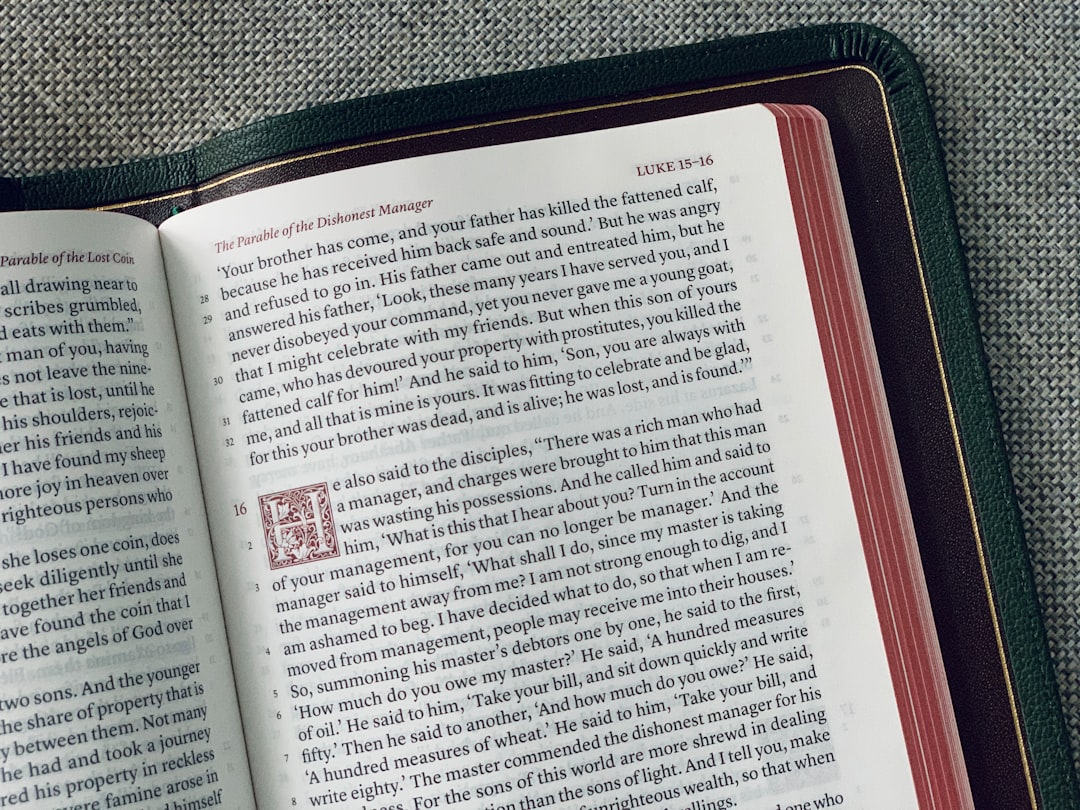The Parable of the Sower is one of the most well-known stories in Christianity, and it has been interpreted in many different ways. In this article, we will explore the biblical origins of the story and unearth its hidden meanings by breaking it down into its key components. Whether you’re new to the tale or an old hand, you’re sure to gain new insights from our in-depth look at this famous parable. Read on to learn more!
The Parable of the Sower: Overview and Background

Before we dive into the different interpretations and lessons that can be derived from the Parable of the Sower, it is important to understand the context in which it was told. This biblical parable was one of many parables told by Jesus in the New Testament to teach people about the Kingdom of God. In this particular parable, Jesus tells the story of a sower scattering seed, and the seed falls on four different types of ground: stony ground, thorns, good soil, and a path.
As Jesus tells the story, he explains that the seed is representative of the word of God, and the different types of soil represent different ways in which people hear and receive the word. Those who hear it without understanding are like the seed that falls on the path, which is quickly snatched away by the birds. Those who hear it but are not rooted in faith are like the seed that falls on stony ground, which withers quickly in the sun. Those who hear it but are distracted by the cares of the world are like the seed that falls among thorns, which chokes out the good crop. Finally, those who hear it and fully understand it are like the seed that falls on good soil, which grows and produces much fruit.

The Parable of the Sower is a powerful metaphor that speaks to the importance of understanding and accepting the word of God. With this parable, Jesus was emphasizing the fact that not all who hear the word will understand and accept it, but those who do will reap great rewards.
Some scholars have also noted that the parable can be understood in light of the agricultural practices of ancient Palestine. In an agrarian society, planting and cultivation were key components of survival, and seed was a precious commodity. By using this metaphor, Jesus was making a powerful statement about the importance of spiritual enlightenment and growth. Just as a farmer must carefully till and nurture the soil in order to produce a good crop, so too must individuals carefully cultivate their own spiritual lives in order to grow and flourish.
In conclusion, the Parable of the Sower is a rich and complex biblical story that speaks to the importance of faith, perseverance, and spiritual growth. By understanding the context and symbolism of the story, we can gain a deeper appreciation for the teachings of Jesus and how they can be applied to our own lives. Below is a brief summary of the major points covered in this section:
- The Parable of the Sower is a story told by Jesus to teach people about the Kingdom of God.
- The seed in the story represents the word of God, and the different types of soil represent different ways in which people receive the word.
- The parable emphasizes the importance of understanding and accepting the word of God in order to reap great rewards.
- The metaphor can also be understood in light of the agricultural practices of ancient Palestine, and speaks to the importance of spiritual cultivation and growth.
The Three Types of Soil in the Parable and their Interpretations
In the Parable of the Sower, Jesus tells of a farmer who sows seeds on four types of soil. The soil represents the hearts of people who hear the word of God. The seeds that fall on each type of soil have different outcomes, symbolically showing the different responses people have when they hear the gospel.
The first soil Jesus mentions is the rocky ground, where the seeds quickly sprout but soon wither because they have no substantial roots. This soil represents those who hear the word of God but do not have enough faith to endure persecution or trials. They may initially be excited about Christianity but are not fully committed to following it.
The second soil is the thorny ground, where the seeds grow alongside thorns and choke the plants. This soil represents those who let worldly concerns and material possessions distract them from their faith. They may believe but become too focused on their careers, relationships, or monetary success. As a result, their faith does not mature, and it becomes increasingly difficult to find inner peace and spiritual growth.
The third soil is the good soil, where the seeds grow strong and produce fruit. This soil represents those who hear the word of God and are receptive to it. They are committed to their faith and use it as a foundation for all aspects of their life. They help others, show kindness and compassion to those in need, and continue to seek spiritual enlightenment.
The Parable of the Sower teaches us that people’s responses to the gospel are often varied. Some may hear it but never fully commit, while others may quickly fall away due to external pressures. However, some individuals will go on to become strong and faithful Christians who use their faith to bring about positive change in the world.
Understanding these three types of soil helps us to examine our own hearts and determine where we stand in our spiritual growth journey. It also reminds us to be compassionate towards others who may still be searching for spiritual truth and to help guide them towards the good soil.

In the next section, we will explore the lessons that can be gleaned from the Parable of the Sower for spiritual growth and faith.
Lessons from the Parable for Spiritual Growth and Faith
The Parable of the Sower is a well-known biblical parable that has a symbolic meaning that transcends time. The story, as told in the Gospel of Matthew, Mark, and Luke, is about a sower who goes out to sow seeds. These seeds fall on different types of ground, including stony ground, thorns, and good soil. The interpretation of these types of soil has been studied and discussed by theologians, pastors, and Bible scholars for centuries. Here are some lessons we can learn from the Parable for spiritual growth and faith:
-
The state of our hearts determines our spiritual growth: The state of the soil in which the seeds fall in the Parable of the Sower teaches us that the state of our hearts determines our spiritual growth. If we have a hard heart, the Word of God cannot penetrate our hearts, and we cannot grow in our faith. If we have a heart full of thorns, the worries of this life choke out the Word of God, and we cannot mature in our faith. But if we have a heart full of soil, the Word of God can take root in our hearts, and we can grow and mature in our faith.
-
We need to be intentional in our spiritual growth: Like the sower, we need to be intentional in our spiritual growth. We need to sow the seed of God’s Word into our hearts daily, read the Bible, pray, and meditate on God’s Word. We need to surround ourselves with people who will help us grow in our faith, encourage us, and hold us accountable.
-
Spiritual growth takes time and patience: Just like seeds take time and patience to grow and mature into fruitful plants, spiritual growth takes time and patience. It’s not a one-time event, but a journey that requires daily effort, discipline, and commitment. We need to trust God’s timing and allow Him to work in us and transform us gradually.
-
We need to share our faith with others: The Parable of the Sower teaches us about evangelism and the importance of sharing our faith with others. We need to be like the sower who scattered the seeds everywhere, regardless of the type of soil. We need to share the good news of the Gospel with everyone we meet, regardless of whether they are receptive or not. We never know when someone’s heart will be ready to receive the seed of God’s Word and grow in their faith.
In conclusion, the Parable of the Sower teaches us valuable lessons about spiritual growth and faith. It reminds us to cultivate our hearts, be intentional in our spiritual growth, be patient, and share our faith with others. As we apply these lessons to our lives, we will grow in wisdom, knowledge, and faith and become fruitful and effective in our service to God and others.
The Significance of Seed Planting and Agriculture in the Parable
In the Parable of the Sower, Jesus used a powerful analogy of a farmer sowing seeds to illustrate his teachings on spiritual growth and faith. It’s worth noting that agriculture was a fundamental part of Jewish economy and lifestyle during biblical times. Therefore, the use of agriculture-based analogies would resonate with the people to whom Jesus was speaking in simple yet profound ways.
The parable talks about different types of soil, identified as the stony ground, thorns, and good soil, onto which the farmer sowed the seeds. The farmer’s essential task was to ensure that the seed landed on good soil to produce a bountiful harvest. Jesus used this analogical reference to help people understand how some of us receive the message of God and grow, but others fail to grow due to external factors.
Jesus made it clear that all the soils represent different aspects of our faith, attitudes, and environments that influence our spiritual growth. The seeds symbolize the message of God, which He wants to sow in our lives. Therefore, the significance of seed planting and agriculture in the parable is to highlight the importance of paying attention to the state of our hearts. We need to remain receptive to the message of God and avoid getting caught up in worldly affairs.
« Understanding God’s Just Nature: Exploring Divine Justice and Righteousness.
Unpacking the Hierarchy of Angels: Understanding the Divine Order of Celestial Creatures »
Through this parable, Jesus also reminded us that seeds need water and nutrients to grow. Spiritual enlightenment comes through constant prayer, reading the Bible, and studying it. Without proper spiritual practices, our faith may wither and die.
Furthermore, the analogy put the burden of our spiritual growth on our personal choices. The farmer can only sow the seeds, but it’s up to us to ensure that our hearts are fertile enough to receive the message of God.
The Parable of the Sower teaches us that we must cultivate a healthy spiritual environment, just as farmers cultivate the land. We should seek to remove the weeds from our lives, and create a healthy environment to nurture our faith. Ultimately, Jesus wants us to be fruitful in our lives by planting good seeds that will produce a rich harvest.
It’s essential to understand that the spiritual message of this parable is timeless. Although it was written about farming and agriculture, the lesson applies to all areas of life. Mateo 13:23 says, “But the seed falling on good soil refers to someone who hears the word and understands it. This is the one who produces a crop, yielding a hundred, sixty or thirty times what was sown.” The Parable of the sower is a testament to the fact that God’s message transcends space and time and spreads its roots far beyond the fields of agriculture.

Comparison of the Parable of the Sower across the Gospels
When reading the Bible, it’s important to note that the same teachings and parables may have slightly different versions in different books. The Parable of the Sower is one of the most well-known biblical parables and is featured in three of the Gospels: Matthew, Mark, and Luke. Let’s take a closer look at how the parable is presented in each gospel.
Matthew’s version of the parable is the most well-known and is often the basis for many teachings and interpretations. In this version, Jesus tells the story of a sower who scatters seeds on different types of ground. Some seeds fall on the path and are eaten by birds, others fall on stony ground and wither away, some fall among thorns and are choked, and finally, some fall on good soil and bear much fruit. Jesus explains that the seeds represent the word of God, and the different types of ground represent the different types of people who hear the message. The lesson is clear: only those who receive the message with an open heart and cultivate it will bear spiritual fruit.
Mark’s version of the parable is very similar to Matthew’s, with a few subtle differences. Instead of using the phrase “the word of God,” Jesus uses the phrase “the word” or “the message.” Additionally, in Mark’s version, the seed that falls on the path is simply “the message,” whereas in Matthew’s version it’s explained as “the word of the kingdom.”
Luke’s version of the parable contains some unique elements. For example, instead of saying that the sower scatters the seed, Luke says that the seed is thrown or cast. Additionally, in Luke’s version, the seed that falls on the path represents “the devil” taking the word from people’s hearts. In this version, the seed that falls among thorns represents people who receive the message but are distracted by worldly concerns, whereas in Matthew and Mark’s versions it’s simply “the cares of this world.”

Although the differences in the versions of the Parable of the Sower are minor, they can still provide valuable insight and interpretations for readers. Some scholars believe that the differences in language and wording may reflect the different audiences each gospel was written for. Regardless of the version, the lessons about spiritual growth and faith are universal.
Overall, the Parable of the Sower is a powerful reminder of the importance of cultivating an open heart and mind in order to receive spiritual enlightenment. Regardless of which gospel you read, the message is clear: only those who are receptive to the message and nurture their faith will bear spiritual fruit.
Contemporary Applications of the Parable in our Daily Lives
As with many parables, the story of the Sower in the New Testament holds timeless wisdom that can be applied to our modern, everyday lives. While the analogy between farming and spiritual growth may seem outdated, the truth is that the metaphor still holds up today. Here are some ways we can apply the lessons from the Parable of the Sower to our daily lives:
-
Nurture good soil: In the story, Jesus explains that the “good soil” represents those who hear the word and understand it. In other words, they take the time to cultivate their minds and hearts, so they are receptive to the word of God. This is a reminder to us that we need to be intentional about our spiritual growth, taking time to read the Bible, pray, and meditate on God’s teachings.
-
Recognize the thorns: Thorns, in the story, represent worries, riches, and pleasures that can choke out God’s word and prevent us from growing spiritually. Today, there are many distractions that can do the same. Social media, Netflix, and other forms of entertainment can consume us, leaving little room for reflection or spiritual growth. We need to recognize these thorns and prioritize our time so we can make space for what is truly important.
-
Grow in community: One of the most powerful aspects in the story of the Sower is the role community plays in helping us grow spiritually. In the story, the seeds that fall on good soil grow and produce a harvest. In the same way, we need others to help nurture us and provide support as we grow in faith. Joining a church or small group can provide critical friendship and accountability that can help us stay on the right path.
-
Take action: The Sower is symbolic of someone who persistently takes action, never giving up and always planting new seeds. This is a reminder that we too need to keep taking action, even when we don’t see immediate results. We need to keep seeking God, keep reading our Bibles, and keep serving others. Only by continuing to put in the effort day in and day out can we hope to grow into what God has called us to be.
As we can see, the Parable of the Sower still holds relevance for us today, providing insight and wisdom that can guide us in our own journeys of faith. By staying mindful of these lessons and applying them to our daily lives, we can grow in our spiritual enlightenment and become the “good soil” that produces an abundant harvest.












